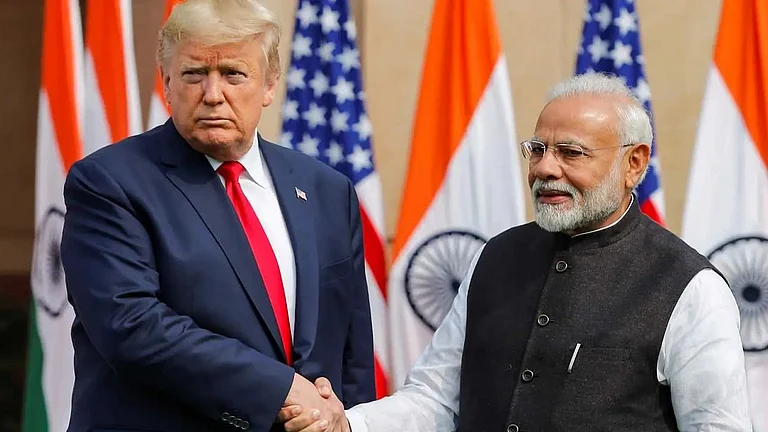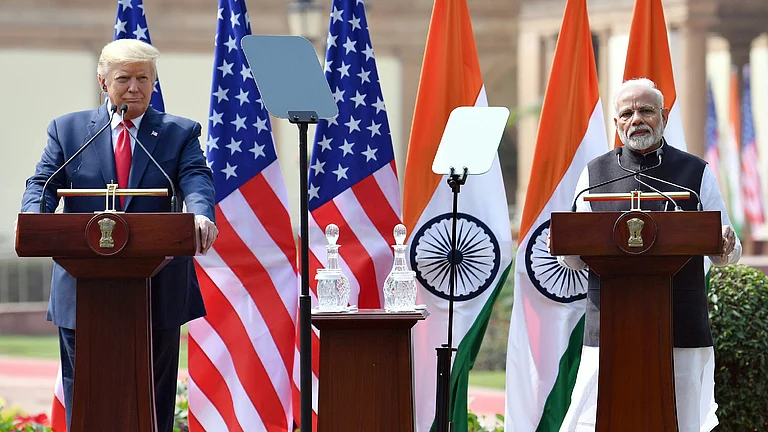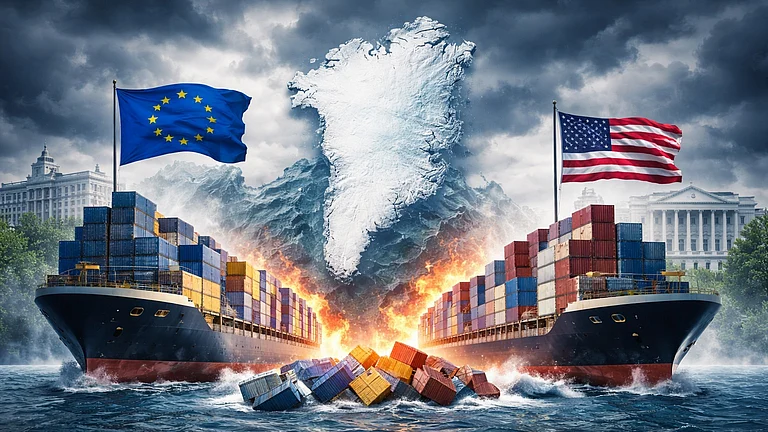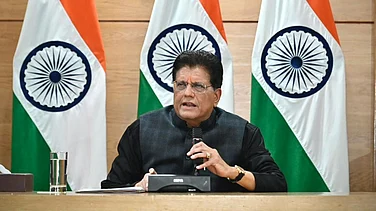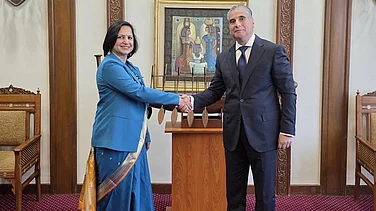
The US has imposed 25% tariff on Indian goods from August 1, plus penalties linked to India’s Russia ties
GTRI says India isn’t worse off than US trade partners like UK, Japan, and Vietnam
EY and FICCI express disappointment but remain optimistic about a fair trade deal
As US President Donald Trump announced 25% tariff on India today, trade experts and policy leaders have expressed concern over the move which also include additional penalties for the country’s continued purchase of energy and arms from Russia.
“…ALL THINGS NOT GOOD! INDIA WILL THEREFORE BE PAYING A TARIFF OF 25%, PLUS A PENALTY FOR THE ABOVE, STARTING ON AUGUST FIRST. THANK YOU FOR YOUR ATTENTION TO THIS MATTER. MAGA!” Trump wrote on Truth Social. The new tariff rate will be effective from August 1, 2025.
While the 25% rate is a notch lower than the 26% proposed in Trump’s April ‘Liberation Day’ speech, it will still mark a significant shift in India-US bilateral trade dynamics. The Global Trade Research Initiative (GTRI), in an official statement, stated that India is not significantly worse off than countries that did sign deals with the US.
In fact, nations like Japan, UK, Indonesia, EU, and Vietnam have faced high tariffs too, and in return, they have given sweeping concessions, such as zero tariffs on US farm good, massive investment pledges, and purchase of US oil, gas and arms. However, India has made no such concessions, it said.
“India did not walk away from the deal; it negotiated in good faith but refused to cross its red lines—particularly on agriculture, where over 700 million livelihoods are at stake….India is not alone; over 90 countries face similar US pressure,” the research institute added. It still hopes that a deal between India and the US may still emerge, but only on “fair terms”.
The Federation of Indian Chambers of Commerce & Industry (FICCI) expressed disappointment over the tariff announcement. However, the industry body is also hopeful of seeing “beneficial” outcomes for both countries when the contours of the final trade agreement will emerge.
“While this move is unfortunate and will have a clear bearing on our exports, we hope that this imposition will be a short-term phenomenon and that a permanent trade between the two sides will be finalised soon,” said Harsh Vardhan Agarwal, President, FICCI.
Agneshwar Sen, Trade Policy Leader of EY India also echoed similar sentiments, saying the two sides will be able to address contentious issues constructively and arrive at a mutually beneficial agreement in the very near term.
On the other hand, PHDCCI President Hemant Jain believes that the world is entering a new phase of supply chain realignment, while noting that India’s long-term opportunity lies in becoming a trusted node in global value chains.
“While Indian MSMEs are momentarily impacted, this is also an opportunity. With global buyers looking to de-risk from overdependence on select geographies, India is emerging as the most credible, democratic, and scalable alternative,” he said.
Jain asserted that India has the demographic dividend, the technological agility, and the entrepreneurial depth to meet global demand across sectors from engineering goods and textiles to pharmaceuticals and electronics.
“Now is the time for Indian industry to step up with quality, compliance, and competitiveness. And with China and Vietnam facing similar tariff headwinds, India stands to gain long-term trust, diversified market share, and stronger positioning as a resilient global partner,” he added.
Soon after Trump’s tariff announcement on India, US Commerce Secretary Howard Lutnick confirmed there will be no extensions or grace periods.










